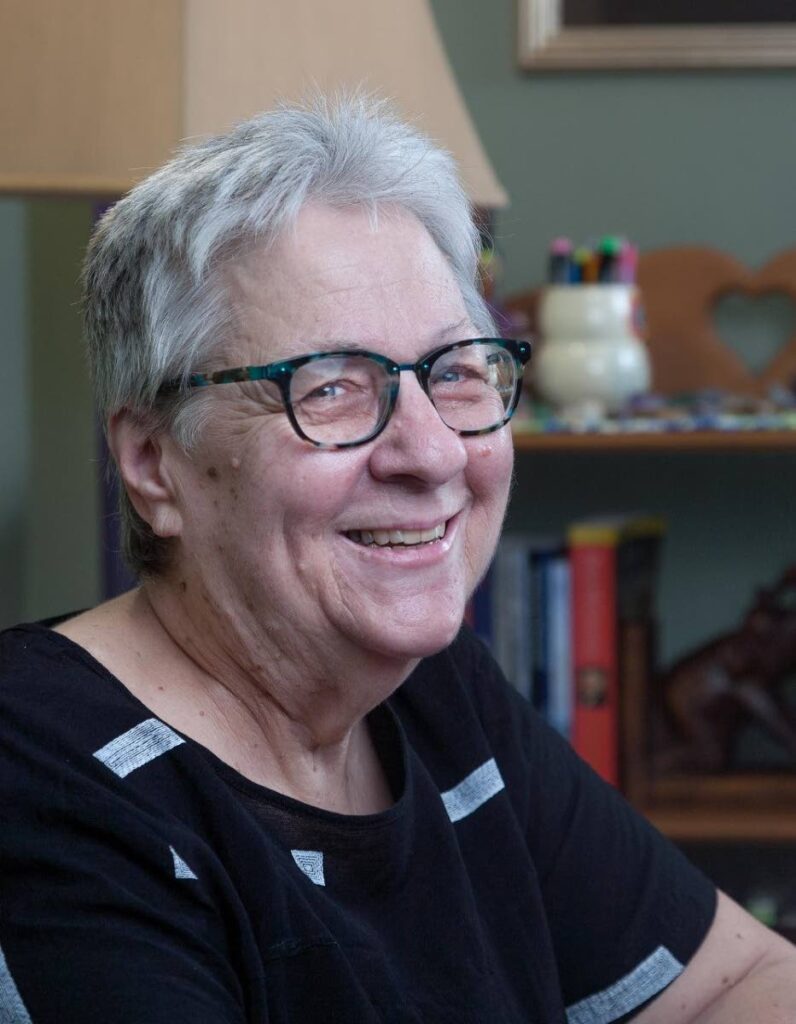The fear of war

DEBBIE JACOB
THE RUSSIAN invasion of Ukraine triggers many memories of my childhood home and the fear of war my mother’s family always instilled in me. I grew up in a small, pink house with a bomb shelter lit by a single naked lightbulb. Singing birds, cowbells and my grandma’s hoe striking rocky earth broke the lonely silence of our family's remote dairy farm in Ohio.
In our garden, my grandma prepared beds of string beans, cucumbers, tomatoes and corn, preserving those vegetables in glass jars placed on shelves in the dark, dank bomb shelter in the corner of our basement.
Even at five, I recall my mom and grandparents preparing for the next big war that would break out in Europe. My grandfather kept a shortwave radio to monitor political events across the sea. The Cuban Missile Crisis in 1962 fed their fears of a volatile world. The shelves in the bomb shelter held more glass jars of emergency food during those 13 days when nuclear war loomed large.
My dad built our home and bomb shelter. He had been a radio operator in the Army Air Corp’s airplanes during World War II, so he never questioned my mom’s fears. We knew her family’s story.
After escaping the Romanian army in the 1930s, my grandfather fled north and found work on Germany’s railroads. On the night my grandma decided to flee Romania to join him, mom broke a mirror. My suspicious but resolute grandmother panicked; then decided to head for the border with her only child. They claimed to be attending a wedding in Hungary when a border guard caught them. My grandmother went to prison; mom got sent home to her grandmother.
On their second bid for freedom, they hid in a horse-drawn cart. The border patrol used pitchforks to stab the straw that covered them. This time, they crossed the Hungarian border to meet the smuggler my grandfather had arranged to take them to Germany.
After World War II, mom’s family migrated to the US. My grandmother arrived first because she was an American citizen born in St Louis, Missouri and taken back to Romania as a minor.
As a child, I didn’t understand enough history to comprehend a family’s obsession with bomb shelters and gardens. Even into her late 80s, my mother insisted on growing tomatoes in her backyard.
“When war breaks out in Europe, we will be sorry we didn’t have a garden,” she said.
She often recalled how her family had lived in Nazi Germany as displaced immigrants. They did not starve because my grandmother had searched fields for sugar beets and potatoes farmers missed while harvesting. My mom often made potato pancakes topped with sugar so we would have a taste of her history.
Last week, when war broke out in Ukraine, I saw my grandmother’s face reflected in those images of every elderly Ukrainian woman wearing a headscarf. Every child fleeing from Ukraine conjured up images of my mom and her trek across the Carpathian mountains when she left Romania.
Much has been said about an unexpected Russian invasion of Ukraine, but I feel certain elderly Ukrainians often feared this day. Anyone who lives through war always expects another war.
To the end of her life at 91, memories of war-torn Europe drove my mom to tears. She recalled fleeing Romania without even being able to take a doll. She couldn’t tell her friends and grandmother goodbye. Twice in her life she would leave a country without a single possession.
I think about how the wars of the past and the present have scattered peace-loving people like my family around the globe. I remember my grandmother’s yellow and white tulips popping up every spring and the geraniums and pansies that formed a ring around our home. Pine trees loomed large in our yard because of this war-ravaged family who always felt compelled to plant something. Flowers, trees and gardens gave them some semblance of peace and security.
My mom often relived that day in 1945 when she ran home from school as air raid sirens wailed. Her life had been spared that day because her friends talked her out of going home to write letters. Her home had taken a direct hit. My grandma ran from the underground munitions factory where she worked in Lehrte and watched her 13-year-old child rummaging through the rubble that had been their home.
Memories of war never fade. Families who live through war anywhere in the world tell their stories hoping we will understand peace can never be taken for granted.


Comments
"The fear of war"